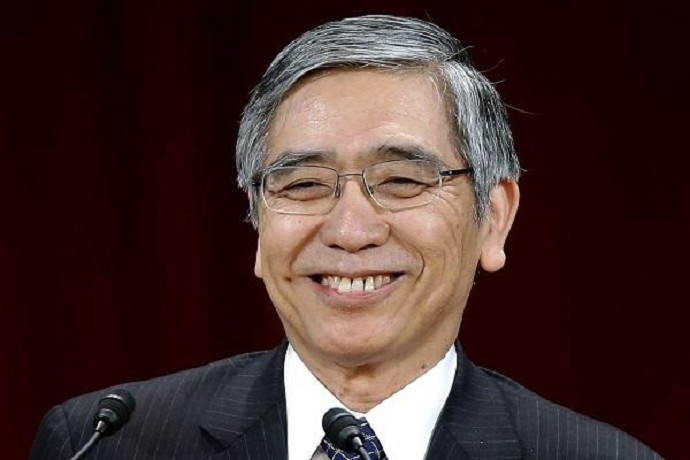See also


 18.01.2023 11:34 PM
18.01.2023 11:34 PMAt its regular monetary committee meeting, the Bank of Japan made the rather expected decision not to raise interest rates. Instead, some rules were changed.
Following the results of the meeting, the BOJ amended rules for a fund-supply market operation. The idea is to expand their functions, making them suitable for use as a tool to prevent long-term interest rates from rising too much.
Obviously, this step should tell us that the central bank is expressing its determination to maintain profitability and its current management policy.
From now on, under the amended rules, the central bank can offer funds of up to 10 years against collateral to financial institutions for both fixed and variable-rate loans. Before the change, the BOJ could offer funds for as long as 10 years only as fixed-rate loans. This should protect financial structures from unforeseen situations in the market, and at the same time we understand that the level of uncertainty for consumers of these loans has increased. Now, in the event of an economic crisis and an increase in interest rates, contracts will be considered upward.
On the other hand, adding loans with a floating interest rate will allow you to use the lending operation as a tool for managing interest rates. It turns out that everyone wins – both the central bank and the banks... except for consumers.
Now the BOJ will also have to quickly make decisions on interest rates for all types of loans so that the yield curve is directed in the right direction.
After announcing the new rules, the BOJ said it would offer five-year loans under the funds-supply operation with a duration of between January 24, 2023 and January 24, 2028. Obviously, this marks the start of a new mechanism.
We have already seen how the BOJ has struggled to defend a 0.5% cap on the 10-year bond yield set under YCC, as investors have sold off bonds in anticipation of an adjustment to its ultra-loose monetary policy.
As a result, the BOJ reiterated its intention not to make changes to interest rates directly. And the new mechanism has become a compromise between the need to maintain the policy course and influence traders who actively use leverage for carry-trading in conditions of a large difference between the rates of different countries.
Takafumi Yamawaki, head of Japan rates research at J.P. Morgan Securities, said the amendment would allow the BOJ to offer five-year loans with the funds-supply operation, a move that would help push down five-year swaps. But I doubt that the effect will be exactly that. Inflation in Japan is about 3%. This is above the target level, which means the volume of loans is falling. Especially against the background of active withdrawal of funds from the bond sector.
Another version concerns the political background. Some analysts believe that in this way Kuroda softens the general background so that his successor, if he comes in April as a result of the next election, will not face a difficult situation. I don't think that was Kuroda's leading motive. Judging by how long the head of the bank has rigidly kept a diamond hand on the throat of banks with his ultra-loose policy, not allowing rates to increase on the same loans, the fate of his successor worries him the least.
It is still difficult to predict how well this tool will work. Of course, the rates on new contracts will be revised with the fixation of the floating regime. Banks will not get much profit from this, taking into account low inflation and low interest rates. But this will tighten swaps, so theoretically it will cover part of the losses from investing in risky assets, which can already be called the main headache of bankers this year.
You have already liked this post today
*The market analysis posted here is meant to increase your awareness, but not to give instructions to make a trade.
Trading on the last day of the week is unfolding positively. News that China is ready to begin negotiations has inspired investors to buy risk assets and weakened the U.S
Only a few macroeconomic events are scheduled for Friday, but some are quite significant. Naturally, the focus is on the U.S. NonFarm Payrolls and unemployment rate, yet it's also important
On Thursday, the GBP/USD currency pair continued to decline. The dollar had strengthened for three consecutive days—despite having no objective reason. U.S. macroeconomic data has been consistently weak; there were
On Thursday, the EUR/USD currency pair once again traded relatively calmly, but the U.S. dollar failed to show any meaningful growth this time. A little bit of good news goes
InstaTrade
PAMM accounts

Your IP address shows that you are currently located in the USA. If you are a resident of the United States, you are prohibited from using the services of InstaFintech Group including online trading, online transfers, deposit/withdrawal of funds, etc.
If you think you are seeing this message by mistake and your location is not the US, kindly proceed to the website. Otherwise, you must leave the website in order to comply with government restrictions.
Why does your IP address show your location as the USA?
Please confirm whether you are a US resident or not by clicking the relevant button below. If you choose the wrong option, being a US resident, you will not be able to open an account with InstaTrade anyway.
We are sorry for any inconvenience caused by this message.

